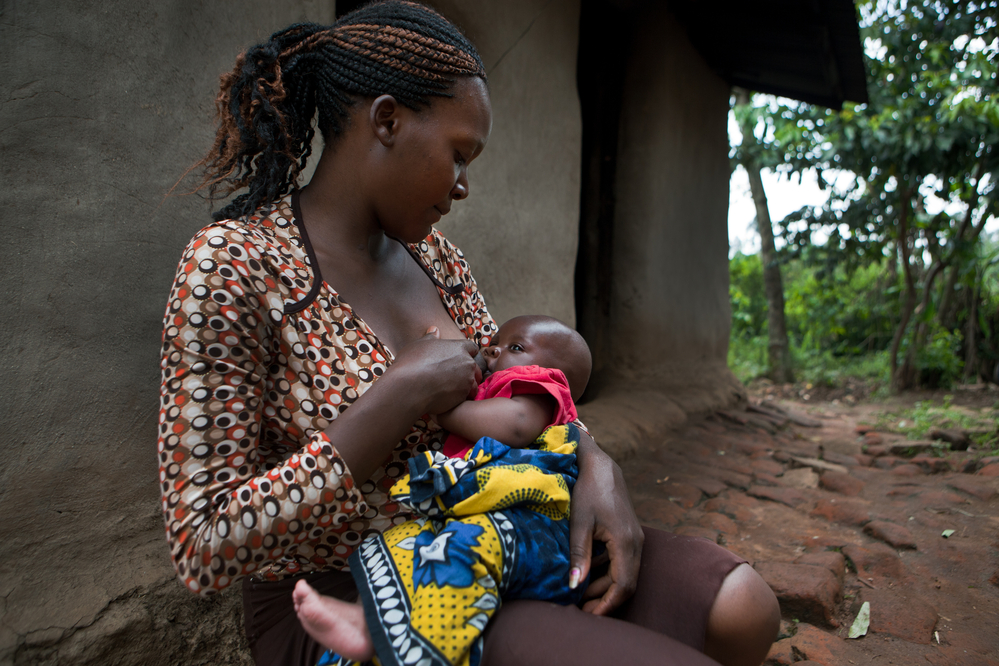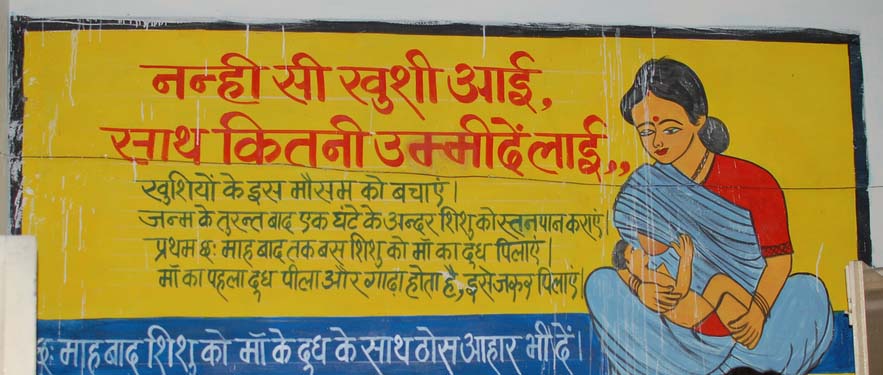The most fundamental of foods is the first step to a healthy start
|

Step-step, pause… step-step… plop (down on her bum)! And just like that, my little one is walking. Completely unaware of the monumental shift she's created in our lives, my daughter happily crawls toward the kitchen to play with Tupperware lids. I wipe away tears.
She's taken her first steps out into the world, a strong and healthy girl. I'll take a little credit for getting her there, starting with one of the earliest “firsts” we shared. Minutes after her birth, before her first bath, before her first diaper change, I gave my daughter her first meal. I happily joined a global community of mothers that early morning.
Not only perfect for providing nourishment, breastfeeding is one of the most basic and universal steps mothers can take to protect their young ones. Vitamins, nutrients, and antibodies develop tiny immune systems, keeping threats like diarrhea and pneumonia at bay, promoting quicker recovery when infections do strike, and improving infants' response to vaccines.
Despite the proven benefits, too many children worldwide never realize the promise of their mothers' milk. More than one in ten of all child deaths are due to suboptimal breastfeeding. Without the vital nutrients provided by breastmilk, children are caught in a vicious cycle of malnutrition and illness, often including repeated bouts of diarrhea. If their lives are spared, malnourished children often suffer shortfalls in physical and cognitive growth.
What will make the difference? Efforts to educate mothers and health workers and to provide breastfeeding support are crucial for keeping infants healthy. Breastfeeding may be simple - but it is not always easy. I am fortunate that my daughter and I worked out early kinks fairly quickly. But had we not, support groups and clinical counselors were a phone call away. Latching problems, over- or underproduction, mastitis, clogged ducts, negative perceptions in public or even among family members… any number of things can undermine a mother's attempts to breastfeed her baby, or even cause her to call it quits. Just one conversation with an informed counselor or community advocate about the benefits of breastfeeding and simple strategies to overcome impediments could truly save a mother's confidence and a child's life.

If 90% of mothers exclusively breastfed their infants during the first six months, and continued complementary breastfeeding through the baby's first two years, more than 200,000 child deaths could be avoided each year. Breastfeeding's dramatic potential is one of the reasons it's almost always included in child health strategies, from the Millennium Development Goals to village outreach. But even with targeted promotion at the most global and local levels, fewer than half of infants worldwide are exclusively breastfed through the first six months of life, according to UNICEF. The benefits of breastfeeding are irrefutable. But mothers need our support: their children's lives depend on it.
When you spot a mother nourishing her infant with the most fundamental of foods, celebrate her! When a friend or relative confides in you her troubles and uncertainties, help her find support. Raise your voice to a global pitch, sharing important messages about breastfeeding with online communities to influence policymakers and encourage the inclusion of breastfeeding goals in the Sustainable Development Goals now under consideration.
We all can take steps to create a monumental shift.
-- Deborah Kidd is a Senior Communications Officer for the Vaccine Development Program at PATH.
Photo credits: PATH/Evelyn Hockstein; PATH/Lesley Reed.














